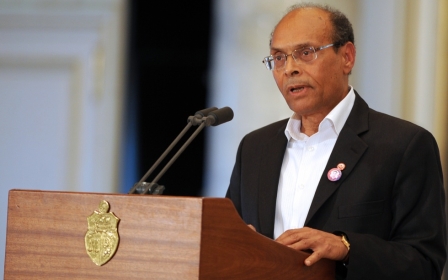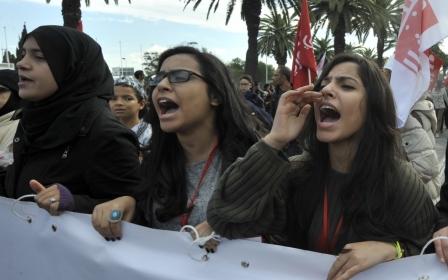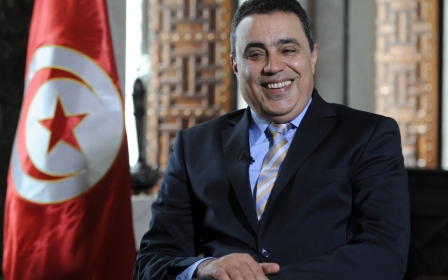Tunisia forms commission to compensate Ben Ali victims

TUNIS - Tunisia on Monday formed a long-awaited truth and justice commission, more than three years after the 2011 revolution, to implement "transitional justice" and compensate the victims of decades of dictatorship.
The 15-member body, which was elected by the national assembly with a majority of 71 votes, will also be tasked with identifying and bringing to trial those responsible for abuses committed under the former regimes of Zine El Abidine Ben Ali and Habib Bourguiba.
Its formation comes after two years of political bickering that stalled progress on the country's institution building, and six months after the transitional justice law was finally ratified by parliament after repeated delays.
A planned reconciliation mechanism, whose details have yet to be elaborated, will be responsible for "strengthening national unity".
The new commission is made up of human rights activists, representatives of victim groups, opponents of Ben Ali and judges.
New MEE newsletter: Jerusalem Dispatch
Sign up to get the latest insights and analysis on Israel-Palestine, alongside Turkey Unpacked and other MEE newsletters
Crimes it is tasked with identifying include voluntary homicide, rape, extrajudicial killings and torture, as well as economic crimes such as misappropriating public funds and financial corruption.
The transitional justice system also aims to reform the laws and institutions of the judiciary that allowed such abuses to happen, in order to strengthen the rule of law.
Since the January 2011 uprising, Tunisia's new rulers have yet to implement any significant reforms of the judiciary, penal code or the security services on whom Ben Ali relied to suppress dissent.
Separately, the national assembly was due to debate a bill on Monday that would set up special tribunals to try those responsible for the bloody crackdown on popular protests that led to Ben Ali's ouster, in which more than 300 people were killed.
The initiative comes after a military tribunal allowed the then head of presidential security Ali Seriati and interior minister Rafik Belhaj Kacem to walk free after controversially cutting their jail sentences on appeal, in rulings that sparked public anger.
Both men had initially been handed heavy prison terms for their part in the deaths of protesters during the uprising.
Middle East Eye delivers independent and unrivalled coverage and analysis of the Middle East, North Africa and beyond. To learn more about republishing this content and the associated fees, please fill out this form. More about MEE can be found here.




